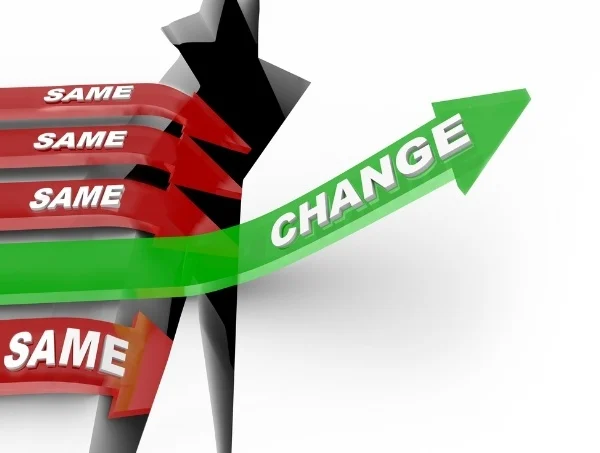According to Futurist Daniel Burrus, “In the next five years, we are going to transform—not change, but transform—how we sell, how we market, how we communicate, collaborate, innovate, train and educate.” Driven by exponential change in technology, our world is experiencing disruption in every aspect of our lives. And in the words of Disney CEO Bob Iger, “The riskiest thing we can do is maintain status quo.”
But what constitutes our status quo?
- Present business model
- Present services
- Present business risks
- Present customer needs
- Present skill set
- How we work
- When we work
- Where we work
I hope that’s enough status quo to get us all on the same page—even if just briefly. So if these things are going to be transformed, disrupted, disappear or simply change, what does that mean for a status quo mindset?
Well, what is a status quo mindset? I think a status quo mindset is where we do not challenge any of the assumptions, beliefs, legacy thinking or logic associated with the above list. It’s a mindset where we have not expended any time on critical thinking about the risks associated with that list. This is not uncommon. It’s known as an omission bias and in it, we tend to see lots of risks associated with something new or change while we ignore or are blind to the risk of the status quo itself. Our past success blinds us to the risks associated with the present. As someone so accurately said, the biggest enemy of future success is present success because it promotes omission bias. Worse, research confirms that the pain of loss is at least two times greater than the pleasure of gain, so we tend to choose current state and look for things that support those beliefs.
Is it conceivable that not changing, not making decisions, not anticipating, not being agile is riskier than ever before? Possibly even riskier than making the wrong change/decision?
“Change your mindset, change your results,” as Burrus likes to say. So what if we started challenging our status quo mindset? Let’s ask some hard questions and focus on the risks of remaining the same.
- What could disrupt our present business model? What would reduce our profitability? What risks would limit our growth?
- What skills might be needed to be successful in the future? How does our present skill set match up with this risk? What’s new that we have very little development in?
- What present services could become less valuable? Which services will be treated more like commodities based on how we presently provide them? What services could simply be replaced with technology?
- What changes might cause us to work differently? Would these cause us problems with recruitment and retention of talent? Does this provide additional succession risk?
- What are the new business risks? Reputational risks? How does social media create risks for us? Does our digital platform present new and unfound cyber risks? Who might be new competitors that are outside of our profession?
Sometimes contrarian thinking is our best friend. But today, we should be wary of letting status quo be too close. Now, when we procrastinate or only talk about the change, transformation and disruption, we inevitably limit our future. While we continue to simply maintain our current operations with small incremental gains, the world is making the choices and providing new business models that will affect our future success.
With growing odds that we will experience a disruption in our value chain, how do we prepare to have an advantage? How do we seize our future? Let’s be sure to create urgency in our firms that leads to challenging our business models and making proactive changes. The longer we wait, the more the disruption limits our choices and they simply become narrower and more expensive with each passing day. No decision and no change are risky recipes for us today. How will you handle the disruption?



